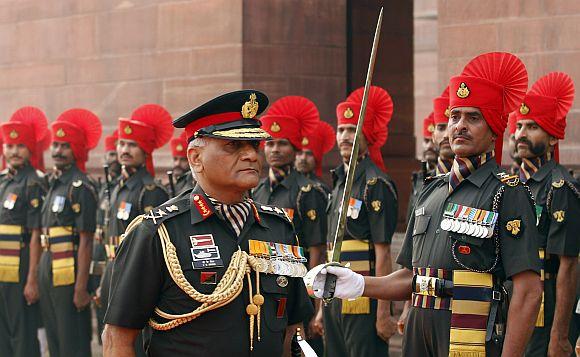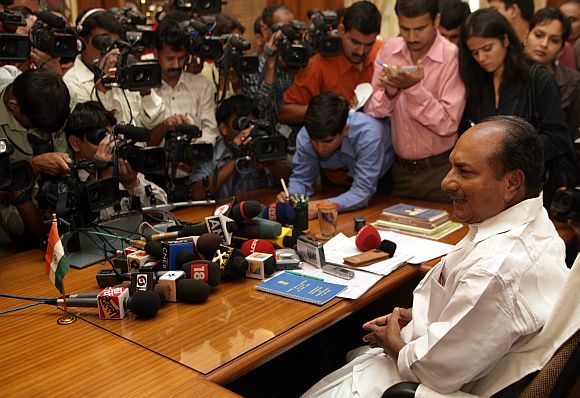Photographs: Adnan Abidi/Reuters B Raman
The time has come for the government to institute a defence advisory notice system in India when media crosses the Laxman rekha, argues B Raman.
The current controversy relating to Gen V K Singh, the chief of the army staff, has led to some worrisome aspects in the media coverage of the controversy. The likely impact on national security has not been kept in view not only by some sections of the media, but even by some retired public servants who have been commenting on the controversy in TV debates.
Some sections of the media and some individual journalists as well as some public servants, who have held senior positions in the government, have crossed the Laxman rekha in their reporting and panel comments.
The government has also been a passive spectator of the way the controversy has crossed one Laxman rekha after another. It is generally the tradition in other countries that when a sensitive document indicating deficiencies in defence preparedness leaks out, the governments deny in public their authenticity, but enquire into the leakage in secret.
When the contents of Gen Singh's letter of March 12, 2012, on the defence preparedness leaked out, the immediate reflex of a clued-up government would have been to deny its authenticity in public and order a secret enquiry.
Please ...
What govt must do when media crosses the Laxman rekha
Image: File picture of Defence Minister A K Antony speaking to mediapersons in New DelhiPhotographs: B Mathur/Reuters
Instead, many responsible members of the government including the defence minister and the army chief have made public comments tending to corroborate its authenticity, thereby providing official confirmation to our adversaries that the serious deficiencies mentioned in the letter are correct.
In the UK whenever serious controversies and leakages likely to affect national security break out, the defence ministry immediately moves and issues what is called a defence advisory (DA) notice requesting the media, the journos and others to exercise restraint in reporting and commenting so that national security is not damaged.
The DA notices cannot be legally enforced. Whoever doesn't observe them does not commit any offence. But it is a strong reminder to all concerned of their ethical responsibility in the matter.
Fears that they may fall foul of the public by not paying heed to the DA notices act as a check on the journos and others.
There are certain standing DA notices which are of a permanent nature. Some others are issued from time to time whenever a controversy breaks out.
In recent years, DA notices have also been issued relating to terrorism and documents leaked by Wikileaks.
The time has come for the government to institute a DA notice system in India. Australia follows a similar practice.



article